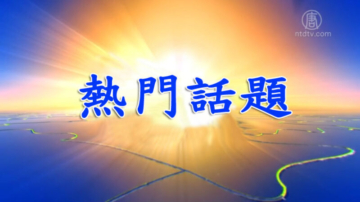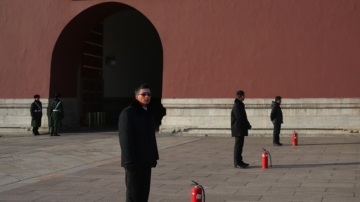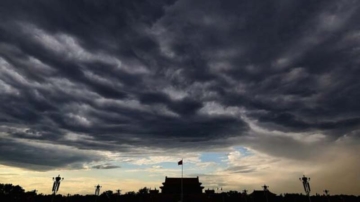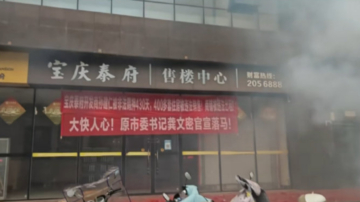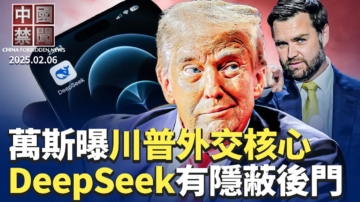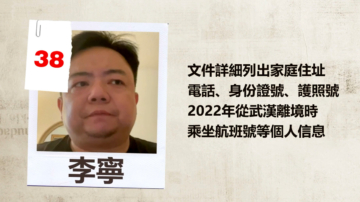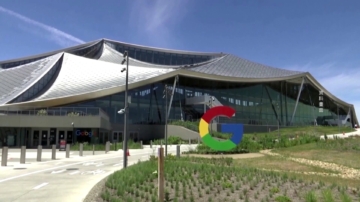【新唐人2014年06月18日讯】日前,中共“国台办”的假全体中国人民之名,要决定台湾的前途,引来台湾民众强烈的抗议和反弹。15号,中共一改先前的措辞抛出橄榄枝,一厢情愿的宣称两岸要“一家亲”,再次遭到台湾民众反呛:“谁跟你一家人!”。有评论人士指出,价值观的不同和未来发展的目标、以及所追求的生活方式不同,这些都没办法同中共成为一家人。
6月15号,在厦门举行的“第六届海峡论坛”开幕式上,中共政治协商会议全国委员会主席俞正声说,尊重台湾同胞对现行社会制度、价值观念和生活方式的认同,知道一些朋友对两岸关系发展还有顾虑。
而要“解决两岸之间存在的分歧和问题,需要双方共同努力,以大局为重。关键是都要从一家人的角度出发,多一点理解,多一点尊重。”
中共官员的言论惹恼了刚被中共决定命运的台湾人。有台湾网友说:“谁跟你们土匪流氓一家人!”而香港人则留言:“见到香港搞成咁(这样),你以为台湾人儍的吗?”
台湾“政治大学国际关系研究中心”主任严震生表示,台湾遵从“一中”宪法,没有要选择台独,只是现在社会上一般人民的认知是,台湾是一个主权独立的国家。
台湾政治大学国际关系研究中心主任严震生:“最后还是一个价值的问题,现在就是台湾已经习惯民主的、自由的,比如说,我身为一位学者,我没有甚么特定的意识形态,但是,比如我到大陆去,对于我一个学者来讲,我上个网这么辛苦、这么麻烦,我要自由做我的研究都要那么辛苦,(受)网络的管制,还不是说考虑我发表的东西会不会受到甚么影响、会不会受到限制、会不会被禁止等等。”
美国“纽约城市大学”政治学教授夏明表示,从“反服贸”和台湾国内发生的一些政治冲突中看出,越来越多的台湾年轻人,他们对台湾本土的认同及本土意识在不断的增加。
美国纽约城市大学政治学教授夏明:“如果大陆跟台湾说,我们是一家人,根本的问题在于,如果是一家的话,这个家规怎么样制定,一家人,如果是一国两制,怎么样的一个家规下面、怎么样一个家庭制度下生存。”
夏明表示,在中国历史上,实际上有过2次“一国两制”,一次是毛泽东跟西藏实行了一国两制。一次是跟香港和澳门约定的“一国两制”。
1951年5月,中共军队占领西藏后,北京同西藏政府签署了《协议》,就是后来所称的“17条入藏协议”。
这项协议规定﹕西藏放弃独立,享有文化和政治自治﹔达赖喇嘛行使内政权利,中国(中共)政府控制西藏的外交和军事等。
夏明:“在50年代,毛泽东跟达赖喇嘛许诺说,西藏人可以保持他们的社会政治制度、宗教文化制度,达赖喇嘛的权力地位都是不发生更变的,对西藏的民主改革、意识形态,我们20年都不会发生变动,但是后来毛泽东没有遵守这个诺言。”
1997年香港主权移交中共,1999年,澳门移交主权,中共在这两个地方实行了“一国两制”。然而,还没有到协议期的“50年不变”,中共6月10号发表的“香港白皮书”,从根本上挑战了“一国两制”。
夏明:“目前更改一国两制,尤其把港人治港变成所谓爱国港人治港,最近看到大陆这边采取许多措施,抓捕香港的民主人士、抓捕逮捕香港新闻出版界人士,显然引起了香港许多的顾虑和担忧,现在他们(香港人)担心他们过去的自由和法制在全部的丧失。一国两制显然不可能让台湾人认为他可以跟大陆生活在同一个家庭中的。”
夏明认为,中共的政治现在正在走向一种全国国家恐怖主义、法西斯化,同时,由于不同的价值体系、对未来的发展目标以及所追求的生活方式,都使大家没办法认同彼此可以成为一家人。
采访编辑/易如 后制/舒灿
Taiwanese: We Are Not One Family
The recent claim that the future of Taiwan is determined
by all Chinese made by the Communist regime’s
Taiwan Affairs Office has met with strong protest
and rally from Taiwanese.
On the June 15, the CCP offered an olive branch
as a symbol of peace and referred to people
from both sides of the Taiwan Strait as one family.
Taiwanese once again refuted the one family claim.
Critics analyze that the difference in values, goals
and lifestyles has made it impossible to become a family
with the Communist regime.
The sixth Cross-Strait Forum opened on June 15 in Xiamen.
During the opening ceremony, Yu Zhengsheng, chairman
of the National Committee of the Chinese People's Political
Consultative Conference, addressed the need to respect
the identity, values and lifestyles of Taiwanese within
the existing social system as well as concerns regarding
the development of cross-strait relations.
Yu said, "To resolve the differences and problems,
both sides need to work together for the greater good.
The key is a little more understanding, a little more respect,
like a family."
Taiwanese were angered by the remarks, which fell
on the heels of the CCP’s decision to discuss Taiwan’s fate.
Netizens questioned, “Who is the family
of the rogue bandits?”
Hong Kong people also responded, “Look at Hong Kong’s
mess, do you think Taiwanese are fools?”
Yan Zhensheng, Director of Institute of International
Relations, National Chengchi University, indicates
that Taiwan adheres to the ‘one China’ Constitution.
It is not about Taiwan’s independence.
However, the general perception of the people is that
Taiwan is a sovereign and independent country.
Yan Zhensheng: "At last, it is an issue of values.
Taiwan is accustomed to democracy and freedom.
Take myself as an example.
As an academic, I have no particular ideology.
However, if I go to China, it is a hassle to get on the Internet
to conduct research freely.
The censorship will make everything so difficult on top
of my publication, beyond whether or not being affected
or prohibited."
Political Science Professor at the City University of New York,
Xia Ming, indicates the anti-trade pact and some of Taiwan’s
political conflicts have shown that the younger Taiwanese
generations are increasingly identifying themselves as natives.
Xia Ming: "There is a fundamental problem
in the mainlanders’ ‘one family’ claim.
As one family, what are the house rules?
With ‘one country, two systems,’ what type of house rules
or house system will sustain the survival of the family?"
Xia Ming explains that in Chinese history, the ‘one country,
two systems’ has existed twice.
The first time was during Mao Zedong’s era in Tibet.
The second was in Hong Kong and Macao.
In May 1951, the Communist military occupied Tibet.
Beijing and Tibet signed the so-called ‘Seventeen Point
Agreement for the Peaceful Liberation of Tibet.’
The agreement provided that Tibet would give up
independence but enjoy cultural and political autonomy;
The Dalai Lama would exercise rights in local affairs
and the CCP government would control Tibet's foreign policy
and military.
Xia Ming: "In the 1950s, Mao Zedong promised
the Dalai Lama that Tibetans will keep their social, political,
religious and cultural systems, the Dalai Lama’s status
as well as power, reform and ideology for 20 years.
But, Mao Zedong did not follow through with his promise."
The hand over of Hong Kong to Communist China in 1997
and the hand over of Macao in 1999 have resulted in the one
country two system policy in both places.
However, prior to the expiration of ‘no changes for 50 years’,
the June 10 publication of white paper on Hong Kong’s
autonomy has already challenged the one country two system
fundamentally.
Xia Ming: "The ‘one country two systems’ has been changed.
In particular, the patriotic Hong Kong people get to rule Hong
Kong.
The arrest of pro-democracy Hong Kong activists
and journalists and other measures of Mainland,
have concerned and worried Hong Kong.
They worry the freedom and rule of law are disappearing
in Hong Kong.
The “one country two system” is obliviously impossible
to persuade Taiwanese that they can live with the mainlander
in one family."
Xia Ming believes that the Communist regime has a tendency
towards state terrorism and fascism.
The difference in values, developmental goals as well as
the pursuit of life, leaves no one identifying both sides
as “one family”.
Interview & Edit/YiRun Post-Production/ShuChan
6月15号,在厦门举行的“第六届海峡论坛”开幕式上,中共政治协商会议全国委员会主席俞正声说,尊重台湾同胞对现行社会制度、价值观念和生活方式的认同,知道一些朋友对两岸关系发展还有顾虑。
而要“解决两岸之间存在的分歧和问题,需要双方共同努力,以大局为重。关键是都要从一家人的角度出发,多一点理解,多一点尊重。”
中共官员的言论惹恼了刚被中共决定命运的台湾人。有台湾网友说:“谁跟你们土匪流氓一家人!”而香港人则留言:“见到香港搞成咁(这样),你以为台湾人儍的吗?”
台湾“政治大学国际关系研究中心”主任严震生表示,台湾遵从“一中”宪法,没有要选择台独,只是现在社会上一般人民的认知是,台湾是一个主权独立的国家。
台湾政治大学国际关系研究中心主任严震生:“最后还是一个价值的问题,现在就是台湾已经习惯民主的、自由的,比如说,我身为一位学者,我没有甚么特定的意识形态,但是,比如我到大陆去,对于我一个学者来讲,我上个网这么辛苦、这么麻烦,我要自由做我的研究都要那么辛苦,(受)网络的管制,还不是说考虑我发表的东西会不会受到甚么影响、会不会受到限制、会不会被禁止等等。”
美国“纽约城市大学”政治学教授夏明表示,从“反服贸”和台湾国内发生的一些政治冲突中看出,越来越多的台湾年轻人,他们对台湾本土的认同及本土意识在不断的增加。
美国纽约城市大学政治学教授夏明:“如果大陆跟台湾说,我们是一家人,根本的问题在于,如果是一家的话,这个家规怎么样制定,一家人,如果是一国两制,怎么样的一个家规下面、怎么样一个家庭制度下生存。”
夏明表示,在中国历史上,实际上有过2次“一国两制”,一次是毛泽东跟西藏实行了一国两制。一次是跟香港和澳门约定的“一国两制”。
1951年5月,中共军队占领西藏后,北京同西藏政府签署了《协议》,就是后来所称的“17条入藏协议”。
这项协议规定﹕西藏放弃独立,享有文化和政治自治﹔达赖喇嘛行使内政权利,中国(中共)政府控制西藏的外交和军事等。
夏明:“在50年代,毛泽东跟达赖喇嘛许诺说,西藏人可以保持他们的社会政治制度、宗教文化制度,达赖喇嘛的权力地位都是不发生更变的,对西藏的民主改革、意识形态,我们20年都不会发生变动,但是后来毛泽东没有遵守这个诺言。”
1997年香港主权移交中共,1999年,澳门移交主权,中共在这两个地方实行了“一国两制”。然而,还没有到协议期的“50年不变”,中共6月10号发表的“香港白皮书”,从根本上挑战了“一国两制”。
夏明:“目前更改一国两制,尤其把港人治港变成所谓爱国港人治港,最近看到大陆这边采取许多措施,抓捕香港的民主人士、抓捕逮捕香港新闻出版界人士,显然引起了香港许多的顾虑和担忧,现在他们(香港人)担心他们过去的自由和法制在全部的丧失。一国两制显然不可能让台湾人认为他可以跟大陆生活在同一个家庭中的。”
夏明认为,中共的政治现在正在走向一种全国国家恐怖主义、法西斯化,同时,由于不同的价值体系、对未来的发展目标以及所追求的生活方式,都使大家没办法认同彼此可以成为一家人。
采访编辑/易如 后制/舒灿
Taiwanese: We Are Not One Family
The recent claim that the future of Taiwan is determined
by all Chinese made by the Communist regime’s
Taiwan Affairs Office has met with strong protest
and rally from Taiwanese.
On the June 15, the CCP offered an olive branch
as a symbol of peace and referred to people
from both sides of the Taiwan Strait as one family.
Taiwanese once again refuted the one family claim.
Critics analyze that the difference in values, goals
and lifestyles has made it impossible to become a family
with the Communist regime.
The sixth Cross-Strait Forum opened on June 15 in Xiamen.
During the opening ceremony, Yu Zhengsheng, chairman
of the National Committee of the Chinese People's Political
Consultative Conference, addressed the need to respect
the identity, values and lifestyles of Taiwanese within
the existing social system as well as concerns regarding
the development of cross-strait relations.
Yu said, "To resolve the differences and problems,
both sides need to work together for the greater good.
The key is a little more understanding, a little more respect,
like a family."
Taiwanese were angered by the remarks, which fell
on the heels of the CCP’s decision to discuss Taiwan’s fate.
Netizens questioned, “Who is the family
of the rogue bandits?”
Hong Kong people also responded, “Look at Hong Kong’s
mess, do you think Taiwanese are fools?”
Yan Zhensheng, Director of Institute of International
Relations, National Chengchi University, indicates
that Taiwan adheres to the ‘one China’ Constitution.
It is not about Taiwan’s independence.
However, the general perception of the people is that
Taiwan is a sovereign and independent country.
Yan Zhensheng: "At last, it is an issue of values.
Taiwan is accustomed to democracy and freedom.
Take myself as an example.
As an academic, I have no particular ideology.
However, if I go to China, it is a hassle to get on the Internet
to conduct research freely.
The censorship will make everything so difficult on top
of my publication, beyond whether or not being affected
or prohibited."
Political Science Professor at the City University of New York,
Xia Ming, indicates the anti-trade pact and some of Taiwan’s
political conflicts have shown that the younger Taiwanese
generations are increasingly identifying themselves as natives.
Xia Ming: "There is a fundamental problem
in the mainlanders’ ‘one family’ claim.
As one family, what are the house rules?
With ‘one country, two systems,’ what type of house rules
or house system will sustain the survival of the family?"
Xia Ming explains that in Chinese history, the ‘one country,
two systems’ has existed twice.
The first time was during Mao Zedong’s era in Tibet.
The second was in Hong Kong and Macao.
In May 1951, the Communist military occupied Tibet.
Beijing and Tibet signed the so-called ‘Seventeen Point
Agreement for the Peaceful Liberation of Tibet.’
The agreement provided that Tibet would give up
independence but enjoy cultural and political autonomy;
The Dalai Lama would exercise rights in local affairs
and the CCP government would control Tibet's foreign policy
and military.
Xia Ming: "In the 1950s, Mao Zedong promised
the Dalai Lama that Tibetans will keep their social, political,
religious and cultural systems, the Dalai Lama’s status
as well as power, reform and ideology for 20 years.
But, Mao Zedong did not follow through with his promise."
The hand over of Hong Kong to Communist China in 1997
and the hand over of Macao in 1999 have resulted in the one
country two system policy in both places.
However, prior to the expiration of ‘no changes for 50 years’,
the June 10 publication of white paper on Hong Kong’s
autonomy has already challenged the one country two system
fundamentally.
Xia Ming: "The ‘one country two systems’ has been changed.
In particular, the patriotic Hong Kong people get to rule Hong
Kong.
The arrest of pro-democracy Hong Kong activists
and journalists and other measures of Mainland,
have concerned and worried Hong Kong.
They worry the freedom and rule of law are disappearing
in Hong Kong.
The “one country two system” is obliviously impossible
to persuade Taiwanese that they can live with the mainlander
in one family."
Xia Ming believes that the Communist regime has a tendency
towards state terrorism and fascism.
The difference in values, developmental goals as well as
the pursuit of life, leaves no one identifying both sides
as “one family”.
Interview & Edit/YiRun Post-Production/ShuChan

